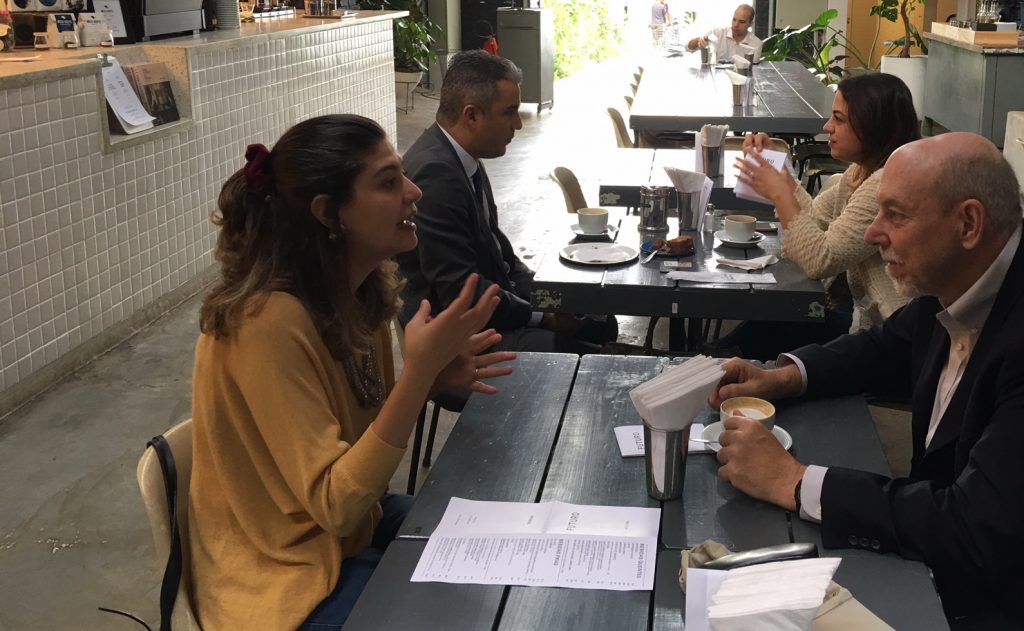
An Active and Effective Woman
Juliana de Faria created a #metoo type movement in Brazil a couple years before it took hold in the USA. She was moved by the same sorts of actions that affected Americans. I will let you see her explain it herself at her TED Talk linked. She is speaking in Portuguese, but the talk has English subtitles. She is founder of the feminist blog Think OLGA and the campaign Chega de Fiu Fiu (Enough with the Catcalling) that challenges sexual harassment in public places. She was recently named one of “8 Incredible Women Who Will Inspire You to Break the Rules” by Cosmopolitan magazine and the Clinton Foundation’s No Ceilings Project. Ms. de Faria partnered with the Public Defender of the State of São Paulo to create and disseminate informational material about sexual assault. Her e-book Meu Corpo Não É Seu (My Body Is Not Yours) was published 2014.
She was one of our IVLPs who traveled in 2016 on IVLP regional project “Women Leaders – Promoting Peace and Security,” so I was interested in learning more about her experiences on our exchange and if it affected here activities. We had coffee and discussed her program. BTW – I asked her permission to write this up and share it, since I otherwise take out the names and some details.
Juliana was already active and effective before she went on her IVLP visit, which is how she came to the attention of our Consulate colleagues. We talked about added value. She talked about the power of networking and that the visit gave her a greater appreciation of how that works. It is not enough, she said, to get lots of attention of lots of people interacting on social media, although those things are important. Affecting lasting positive change requires lasting commitment, and that requires organization, and creation or influencing institutions. She also came to appreciate more the need for partnerships. Partners need not agree with everything you are trying to do. They may even be opponents of some of the things you consider important, but it is better to find points of agreement and work on those.
Networking and the Art of Working with Partners
As we talked, I realized that what she was describing was essentially the theory of networking and idea transmission that we had long studied and tried to implement in public diplomacy efforts. I was concerned that I was hearing what I wanted to hear and feared confirmation bias. I rephrased what I thought I heard her saying, admitting the possibility of confirmation bias. She thought that the rephrasing was consistent with what she was saying, so we were reading from the same page. We agreed that it was less an example of confirmation bias as simple confirmation. We both believed that this was a useful and effective way to pass information and help promulgate ideas.
The Joy and Challenge of Multi-Regional Projects
Speaking specifically about the IVLP experience, Juliana said that it has facilitated her networking with Americans and with others from Latin America who had been with her on the tour. One drawback was that most of the other participants were from Spanish speaking Latin America. Spanish and Portuguese are similar but not interchangeable and it tends to be a one-way transmission in that Portuguese speakers can understand more Spanish than Spanish speakers can understand Portuguese. Juliana and other Brazilian participant were okay with English, but Spanish translation was provided and that tended to make positive group dynamics a little harder.
After her return she had a visit with President Obama. Juliana praised his intelligence and his commitment to improving the situation for women. She mentioned that she was pregnant during the visit and President Obama joked that Barack is a good name for a baby. This was in October of last year when she participated in a dinner for former President Obama when he visited Brazil. That seems some very high-level networking.
